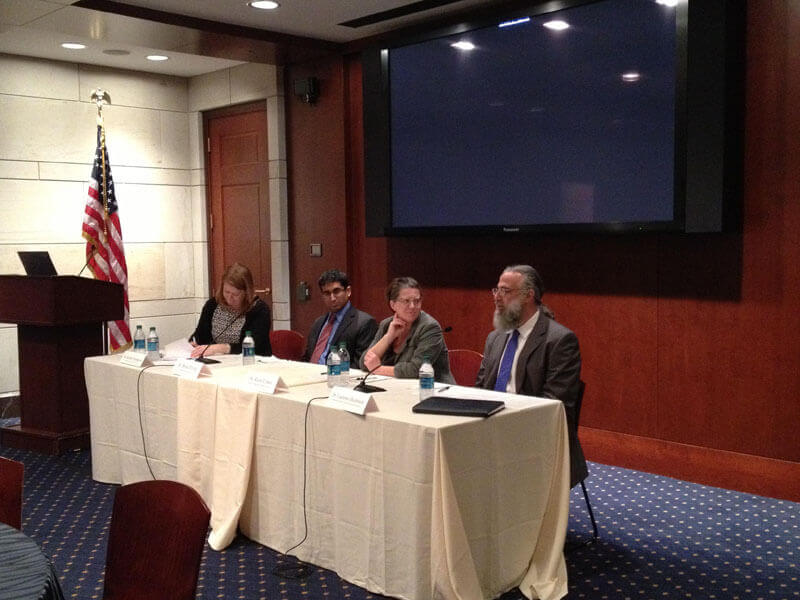Kim LufkinGHTC
Kim Lufkin is a communications officer at GHTC.
“A small, modest investment from the US government could truly transform the lives of people around the world and make a serious public health impact,” Rachel Cohen from the Drugs for Neglected Diseases initiative said yesterday at a congressional briefing focused on neglected tropical diseases (NTDs). NTDs are a group of 17 diseases that infect more than one billion people around the world, most of whom live on less than $1.25 per day.
The briefing focused on how the US government has played a significant role in combatting NTDs globally through programs like those at the US Agency for International Development (USAID), which has helped deliver more than half a billion treatments in six years to more than 250 million people. At the same time, Cohen and other panelists stressed that significant changes are needed to make US NTD programs even more successful.
For instance, several speakers argued that while USAID’s NTD program has been remarkable in its efforts to provide NTD patients with access to existing therapies, the agency must expand the program to include funding for research into new NTD drugs, vaccines, and diagnostics. The fact that USAID does not currently support NTD product development “is a serious gap in USAID’s efforts against NTDs, as most NTDs do not have adequate prevention, diagnostic, or treatment options,” moderator Kaitlin Christenson, GHTC’s coalition director, pointed out. She added that “many existing NTD drugs are toxic, expensive, and difficult to administer in resource-poor settings.” Christenson and other panelists added that congressional support is critical for USAID to expand its mandate into NTD research and product development.

Panelists also highlighted that USAID’s program—which currently addresses only seven NTDs—should expand to include research and control efforts for all 17 diseases. Dr. Brian D’Cruz, an emergency physician who has served with Médecins Sans Frontières (MSF), discussed his experience providing treatment for sleeping sickness in the Central African Republic and Democratic Republic of the Congo to illustrate the need for expanded US support. D’Cruz told the story of Natasha, a 12-year-old girl in the Congo who died of sleeping sickness before his MSF team could provide adequate diagnosis and treatment. He added that MSF physicians are hindered in their efforts to treat patients like Natasha by cumbersome diagnostics and outdated, lengthy treatment regimens.
Dr. Larry Buxbaum with the Philadelphia Research and Educational Foundation also highlighted that many NTDs, such as Chagas, are increasingly affecting populations in the United States. “Climate change is moving many tropical diseases north,” he said, adding “So while research is needed to help people with NTDs in Africa and South America, this research will be useful right here in the US as well.” D’Cruz also said that he has treated patients with Chagas disease in his capacity as a physician in Northern Virginia: “These NTDs exist just a few metro stops away.”
Finally, all the panelists urged US policymakers to become increasingly involved in an ongoing global discussion about how to redefine NTD research and product development efforts. All three of these changes—investing in NTD product development, expanded support for all 17 NTDs, and engaging in global discussions about NTD research—will help ensure that the US makes the greatest impact possible against NTDs worldwide. “We need breakthrough, completely modern therapies and diagnostics for these diseases,” Cohen said, adding, “They are literally in the pipeline. US support could help us get closer and closer to elimination.”